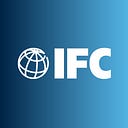COVID-19 and the Insurance Industry: Why a Gender-Sensitive Response Matters
By Susan Holliday
The economic impact of the COVID-19 pandemic has been devastating. People working in almost every sector, from transportation to small businesses, have been affected. Emerging evidence suggests the crisis will have a disproportionate impact on women compared with men.
Even before the coronavirus crisis began, women in emerging markets were more likely to be financially excluded. For example, women are 9 percent less likely than men to have a bank account and, in absolute terms, 56 percent of all unbanked adults across the world are women. Compared with men, women also have a greater “protection gap” — the difference between the insurance they need to get back to the position they were in before the loss occurred, and the insurance they actually have.
COVID-19 has exacerbated the difference in risk profiles between women and men. Women tend to have higher rates of employment in industries like healthcare or work in sectors like hospitality where a large number of jobs may permanently disappear. In emerging markets, women are more likely to work in the informal sector, where income is unpredictable and there is no group health insurance.
The insurance industry, like other parts of financial services, was already moving to greater use of digital technology and the pandemic is helping accelerate the trend. Insurers are having to adapt their models and way of doing business. As they do this, we encourage the industry to consider gender in their strategy and implementation so that women are not left behind, either as customers, or as employees and agents.
As part of our efforts to support women involved with the insurance industry, IFC recently published a guidance note to highlight best practices to better serve women clients and support women insurance agents. The report, COVID-19 and the Insurance Industry: Why a Gender-Sensitive Response Matters, builds on the 2015 SheforShield report, which highlighted a $1.7 trillion opportunity for the insurance industry by 2030 if they target women.
To make insurance more inclusive, I’m proposing four key recommendations:
Be a trusted partner and information source. Insurers want to become a trusted partner and have more engagements with their customers. For example, in the Philippines IFC earlier worked with Insular Life — with support from Women Entrepreneurs Finance Initiative (We-Fi) — to provide insurance coverage to women under the Sheroes program. The program website now offers advice to Filipina women on how to maintain their physical, psychological, and financial well-being during the pandemic. To support WSMEs, Sheroes also organizes virtual webinars that equip Filipina business owners with tools they need to address their financial challenges.
Consider women’s needs and preferences when going digital. COVID-19 has necessitated the insurance industry adopting digital and remote working practices in a short time frame. Insurers need to consider which channels women use and make sure both customers and agents are able to use them effectively. In Kenya, Britam Microinsurance has adapted its operations to employ digital channels, such as WhatsApp, to communicate with its customers, many of whom are first-time insurance purchasers. There is great potential for more women to be successful insurance agents, equipped with the tools to work remotely and with flexible hours.
Maintain proper customer data, including gender. Insurers often have weak customer relationship management systems, and this is an even more urgent priority in a digital environment. We recommend insurers collect sex-disaggregated data, which can help inform decisions from marketing and branding, to underwriting and product development.
Offer customer-centric innovation. Some companies in the insurance sector have launched innovative initiatives during the crisis, both in offering new and add-on products and services, and new distribution partners. For example, telemedicine, offered by health insurers, has taken off in the COVID crisis and will remain important, allowing customers to avoid travel to access health services. In Nigeria, in response to COVID-19, AXA Mansard Health Ltd. launched a telemedicine partnership with Tremendoc to ensure that Nigerians have access to doctors who can diagnose and prescribe treatment, while meeting social-distancing requirements.
As economies reopen, insurers can achieve profitable growth by making a conscious decision to focus on women and women-led SMEs. They can offer flexible roles, supported with technology, to help women succeed as agents and reach more customers. By considering women in all aspects, from marketing to distribution to product design, insurers can reduce the protection gap — in turn leading to more opportunities for women and more resilient families and society.
Susan Holliday is Senior Advisor, Insurance, Financial Institutions Group at the International Finance Corporation
